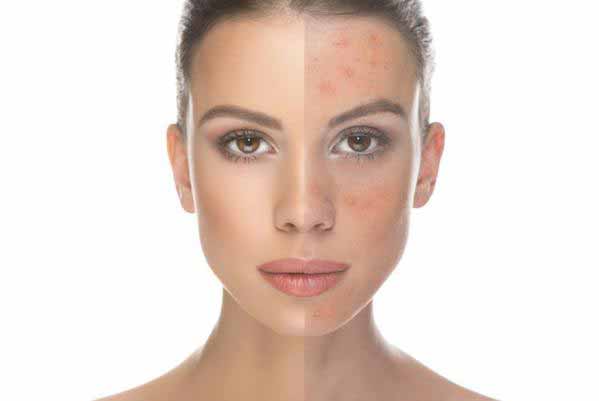Innovative Non-Toxic Skin Healing Solutions

By Dr. Stacy Matthews
Clear and healthy skin is something we all want, and we commit to measures to achieve and maintain this. With the intention of achieving healthy skin, or at least healthy looking skin, many actually unknowingly use products that do the opposite. Many cosmetics contain ingredients that hinder skin health. These include anything from moisturizes to those that are used as make-up. However, many of these products have ingredients that take the skincare journey in an unwanted direction. Read more to learn about common skin irritants and how to achieve healthy skin.
Some of the most common skin irritants in cosmetics are fragrances and dyes(1). Many cosmetics and shampoos contain these chemical substances that can cause irritation and inflammation. With repeated exposure to harmful substances, a number of responses can occur such as rashes, swelling, clogging of pours, and more. For example, eczema, a group of conditions that cause dermatitis (skin inflammation), can flare up from exposure to various skin irritants. These chemicals can irritate any skin type, but are particularly irritating to those with sensitive skin or who are prone to eczema flare ups.
Acne is a skin condition that results when follicles of the skin are clogged with dead skin cells and oil. These clogged areas can become infected with bacteria, swell, and lead to pimples. Many common skincare products contain ingredients that can make acne worse or cause it by promoting clogged pores. A study was reported about skin comedones in women after receiving skin beauty treatments (2). One example of a comedogenic ingredient is stearic acid.
In addition to avoiding products that can cause inflammatory responses, nightly cleansing of the skin with non-irritating and non-comedogenic products like Cytotone Waterless Face Cleanser is an excellent way to help achieve healthier, clearer, and hydrated skin and prevent dermatitis and clogged pores due to exposure to irritating substances. Skin cleansers, moisturizes, and other skin cosmetics are available that contain these types of alternative healthier ingredients. Learning more about and being aware of the ingredients in common skincare products and opting for organic alternatives is a positive step toward healthier vibrant skin.
1. Handa S, Mahajan R, De D. Contact dermatitis to hair dye: an update. Indian J
Dermatol Venereol Leprol. 2012 Sep-Oct;78(5):583-90.
2. Khanna N, Gupta SD. Acneiform eruptions after facial beauty treatment. Int J
Dermatol. 1999 Mar;38(3):196-9.
Comments will be approved before showing up.